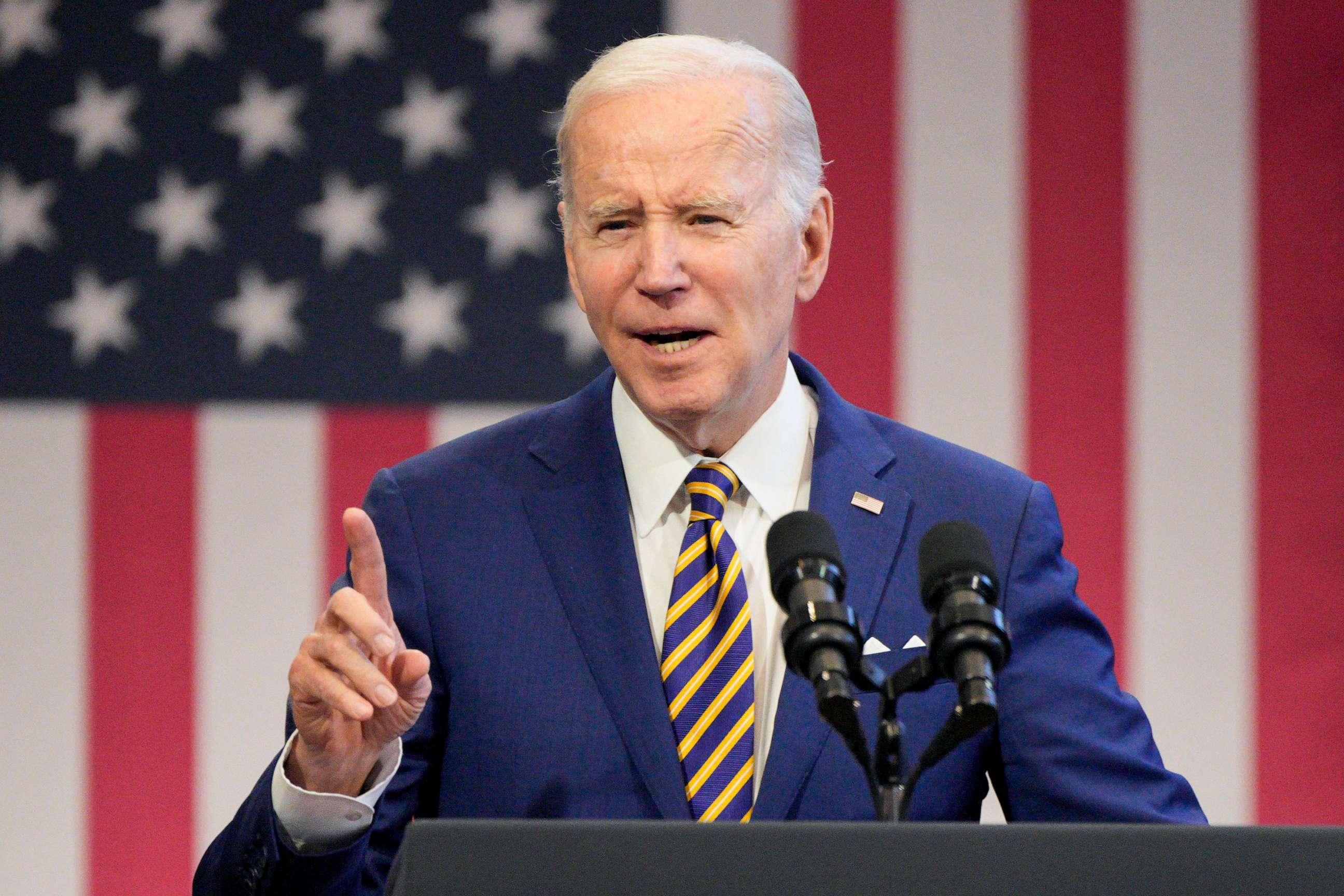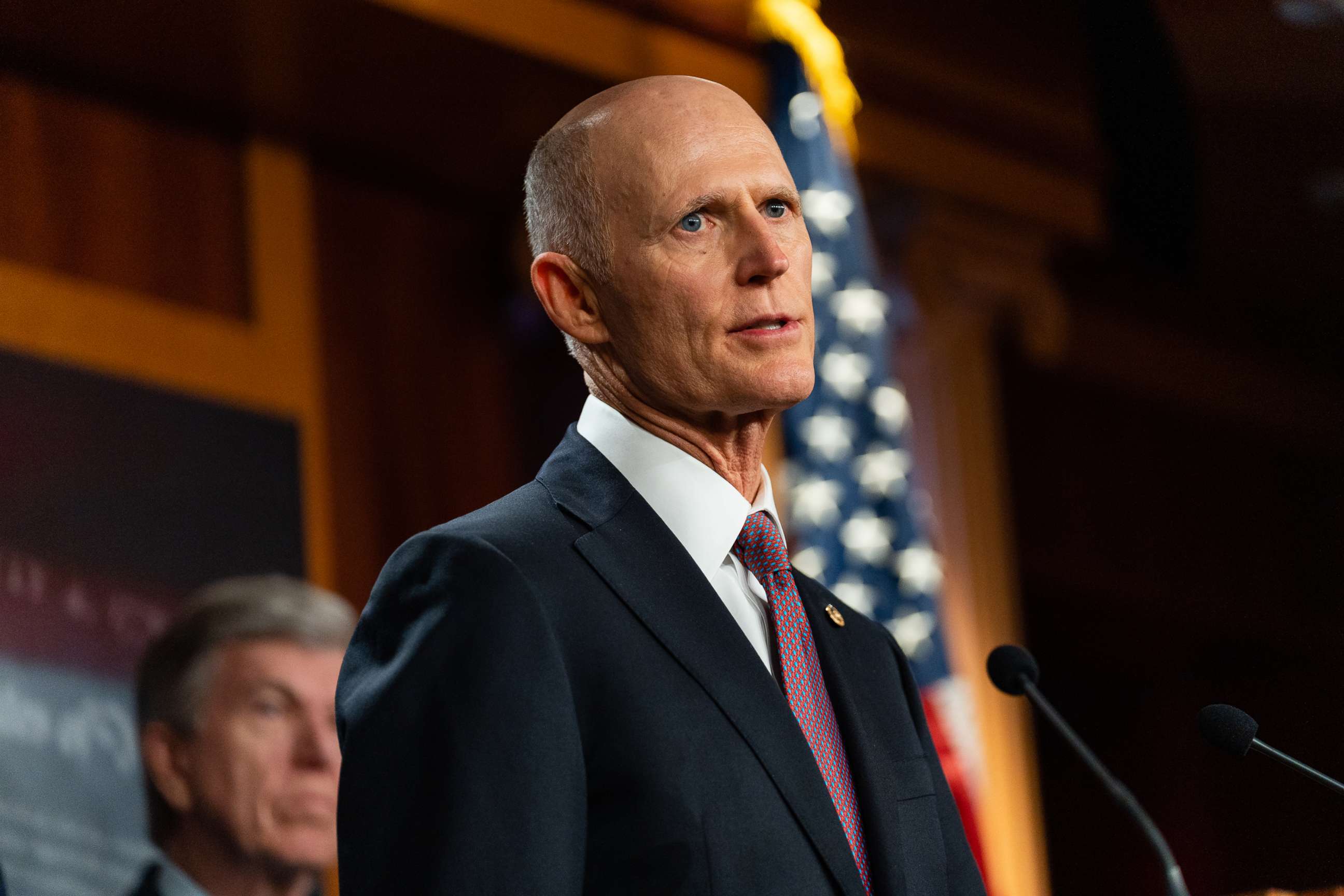Republicans claim Biden cut Medicare by billions, but experts say that's not the case
Sen. Rick Scott has accused Biden of cutting $280 billion from the program.
The fight between President Joe Biden and Republicans on Medicare and Social Security continues weeks after their fiery exchange at the State of the Union.
Biden has taken his message that some in the GOP want to implement cuts to the popular programs on the road, highlighting at nearly every opportunity a proposal by Florida Sen. Rick Scott to sunset all federal legislation every five years -- which the Republican now claims was not intended for Social Security or Medicare.
Scott, in turn, has accused Biden of cutting billions of dollars from Medicare when he signed the Democrats' Inflation Reduction Act into law last year. In an ad released after the State of the Union, Scott said Biden "just cut $280 billion from Medicare."
The back-and-forth comes as the battle over the nation's debt limit intensifies on Capitol Hill. With the country heading toward default as soon as July, lawmakers have to reach agreement on the debt ceiling or risk unprecedented economic consequences.
Biden responded at a union event in Pennsylvania in mid-February.
"Here's Rick Scott's response to this … He said, 'I'm cutting prescription drug costs. That means I'm cutting Medicare.' Where's he been? I think he's a little confused," Biden said.

House Speaker Kevin McCarthy, too, posted online following the State of the Union that Biden slashed Medicare by $300 billion.
But several experts told ABC News that is not the case.
"The suggestion that the Inflation Reduction Act cuts Medicare is absolutely ludicrous," said Stacie Dusetzina, a professor in the department of health policy at Vanderbilt University School of Medicine.
Juliette Cubanski, the deputy director of the program on Medicare Policy at Kaiser Family Foundation, also said "the claim doesn't hold up."
Experts explained the Inflation Reduction Act authorizes the federal government to negotiate some drug prices and requires drug companies to pay a rebate to Medicare if they increase prices faster than inflation, which is saving the program money but not costing beneficiaries.
Other drug-pricing provisions in the plan include capping the cost of insulin at $35 per month for seniors on Medicare and capping out-of-pocket spending for certain beneficiaries.
"These changes reduce the prices that Medicare pays, and reduce Medicare spending, but do not cut benefits or coverage for Medicare beneficiaries," said Gretchen Jacobson, the vice president of the Medicare program at Commonwealth Fund.

According to the final estimate from the Congressional Budget Office, the law's drug-pricing provisions will reduce the federal deficit by $237 billion over the next decade. A previous estimate by the CBO on an earlier version of the bill that was not signed into law placed the savings at $300 billion.
"So the bottom line is that reducing the amount of money that Medicare spends on prescription drugs to the tune of $237 billion is not the same thing as cutting funding for Medicare by $237 billion," Cubanksi said.
The ramped up rhetoric between Biden and the GOP comes amid an impending showdown on the debt ceiling. Democrats want a clean raise to the debt limit without cuts, while Republicans want to reign in government spending.
McCarthy has now said Medicare and Social Security should be "off the table" in the debt ceiling talks. A recent CBO report showed the government will default, or run out of money to pay its bills, sometime between July and September unless Congress raises the nation's $31.4 trillion debt ceiling.



